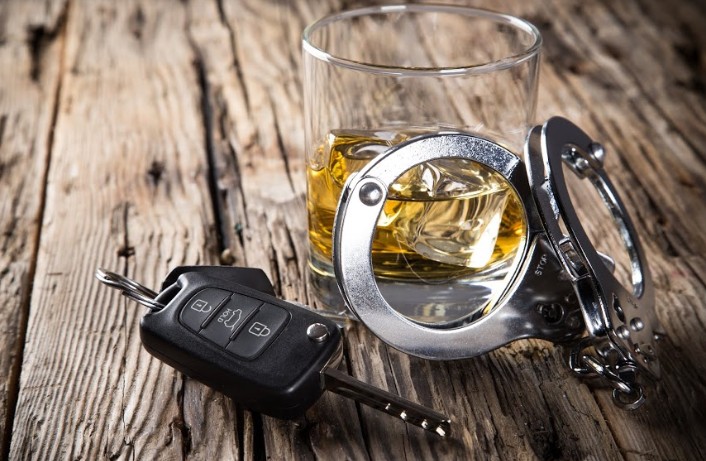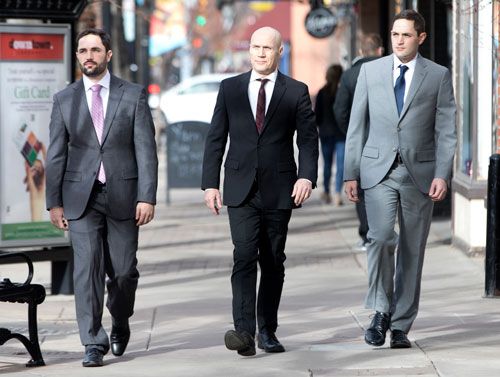 Driving Under the Influence (DUI) and Driving While Ability Impaired (DWAI) are very complex, confusing charges, which result in both criminal consequences and administrative sanctions by the Division of Motor Vehicles (DMV).
Driving Under the Influence (DUI) and Driving While Ability Impaired (DWAI) are very complex, confusing charges, which result in both criminal consequences and administrative sanctions by the Division of Motor Vehicles (DMV).
Being charged with these offenses is incredibly stressful, and knowing what to do next is difficult. The best thing that you can do next is to speak with an aggressive criminal defense attorney who has experienced both defending the criminal charges, and representing clients in hearings with the DMV. In many cases, an attorney may find that your case was investigated improperly, and may be able to have charges against you dropped altogether.
Three Types of Tests
DUI investigations tend to be conducted through three different types of alcohol tests:
THE FIELD SOBRIETY “TEST”
If you have watched a television police show, you have probably seen someone administer a field sobriety test. Commonly referred to as “roadsides,” this is where a police officer asks you to complete some activity designed to enable them to observe functions such as coordination, reaction time, speech patterns, or cognitive function.
Typically, officers will ask you to perform a battery of three tests described by the National Highway Traffic Safety Administration (NHTSA). While the NHTSA does describe the difference between the performance of an impaired person and an unimpaired person, it is still down to the judgment of the officer as to what constitutes the passing or failure of the test.
The officer is trying to determine whether your response to the test is consistent with those of a sober person. Several extremely important things that everyone should understand about roadsides:
- While the tests and standard performance expectations are set by the NHTSA, the officer’s judgment still ultimately determines what happens next. These tests are subjective, even though there are standards.
- The officer’s observations may be usable as evidence against you in court.
- You are under NO OBLIGATION to submit to a field sobriety “test.”
Of course, field sobriety tests are usually a precursor to either a breathalyzer or a blood test. These tests are very different from field sobriety tests in several important ways: they actually measure the amount of alcohol in your system, they give an objective measurement rather than a subjective opinion, there are negative consequences to refusing to submit to these tests. You are legally free to refuse to submit, however doing so is a violation of your driver’s license agreement, and your license will be revoked for twelve months. For this reason, it is usually best to submit to testing, although you are free to choose which test you will take.
THE BREATH ANALYSIS TEST
A breath analysis test, commonly known as a breathalyzer, measures the quantity of alcohol in your breath. It then uses a formula to estimate the amount of alcohol in your blood. Because the number that a breathalyzer produces is an estimate, it is inherently open to inaccuracy. The approximate blood-alcohol content (BAC) that it gives may be high or low depending on various factors. In some cases, the results of a breath analysis test can be extremely inaccurate. These tests are convenient, as many officers carry a portable breathalyzer in their vehicles, but keep in mind that because different people process alcohol differently, the results may be misleading.
THE BLOOD TEST
A blood test actually measures the amount of alcohol in your blood. It is the only way to get an accurate BAC reading, but is more time-consuming and less convenient than a breath analysis test. It is also the most difficult to contest the results of, in court. A result of at least 0.05% but less than 0.08% can result in a charge of DWAI per se, and a result of at least 0.08% may result in a charge of DUI per se.
WHAT CAN YOU DO?
If you have been charged with DUI or DWAI, speak with an experienced criminal defense attorney as soon as possible to protect your rights. They will be able to review your case, determine whether the police had probable cause to investigate you for DUI in the first place, as well as review the evidence obtained in the investigation to determine how to refute that evidence. When it comes to DUI And DWAI, the stakes are high; don’t put your future at risk.
Contact Steven Louth Today
 If you have been arrested and charged with DUI in Boulder or anywhere in the State of Colorado, you need an experienced Boulder DUI Defense attorney on your side from the very start. Contact the Boulder criminal defense lawyers at Steven Louth Law Offices today for a free consultation and review of your case. Call us at (303) 422-2297 or contact us through our website to start building a solid defense against these serious criminal charges.
If you have been arrested and charged with DUI in Boulder or anywhere in the State of Colorado, you need an experienced Boulder DUI Defense attorney on your side from the very start. Contact the Boulder criminal defense lawyers at Steven Louth Law Offices today for a free consultation and review of your case. Call us at (303) 422-2297 or contact us through our website to start building a solid defense against these serious criminal charges.
